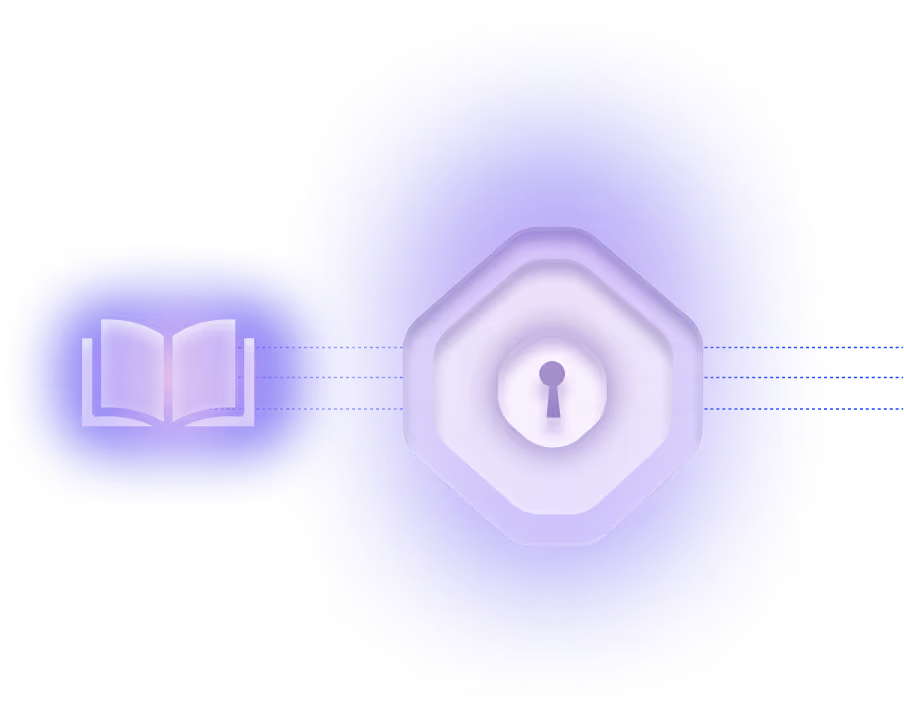Secret Rotation

What is secret rotation?
Secret rotation refers to the automated or manual process of replacing sensitive credentials—such as API keys, access tokens, passwords, and cryptographic keys—on a regular or policy-driven basis. In the context of cybersecurity and Non-Human Identities (NHIs), secret rotation ensures that machine credentials are periodically updated to reduce the risk of unauthorized access, credential theft, or long-lived exposure. The process typically involves generating a new secret, validating its integration, retiring the old secret, and updating dependent systems accordingly.
Why is it important?
Secret rotation is a foundational control in managing the security lifecycle of NHIs. Unlike human users who can be protected with multi-factor authentication and session monitoring, NHIs rely entirely on credentials to authenticate system-to-system interactions. If left unrotated, these credentials can remain valid for months or even years—greatly increasing the risk of compromise. Research shows the average lifespan of unrotated secrets exceeds 600 days, creating a significant attack surface for adversaries. Regular rotation mitigates this risk, supports zero trust principles, and is a requirement in many regulatory frameworks such as SOC 2, HIPAA, and PCI DSS.
What are common applications or use cases?
In practice, secret rotation is used across a wide range of enterprise environments. For example, a cloud-native application may rotate its database credentials every 30 days using AWS Secrets Manager or HashiCorp Vault, ensuring that long-term credentials are never exposed in code or configuration files. In CI/CD pipelines, ephemeral secrets with short time-to-live (TTL) are injected at runtime, reducing the window of opportunity for credential misuse. Enterprises also use rotation policies to automate key management in TLS certificates, service accounts, and Kubernetes workloads.
What is the connection to NHIs (Non-Human Identities)?
Secret rotation is especially critical for NHIs, which outnumber human identities by more than 50:1 in modern enterprises. NHIs—such as service accounts, microservices, and machine learning agents—often operate across hybrid and multi-cloud environments where credential sprawl and visibility gaps are common. Without rotation, these credentials become static and overprivileged, making them attractive targets for attackers. Automated secret rotation helps enforce least privilege, reduce dwell time of exposed secrets, and support continuous compliance for NHIs.
Are there any notable industry data, trends, or standards?
Yes. Industry studies report that 71% of organizations fail to rotate secrets within recommended intervals, and 73% of secrets vaults contain misconfigurations that could lead to breaches. Modern solutions leverage policy-based automation, AI-driven anomaly detection, and ephemeral secret injection to overcome these challenges. Emerging standards from NIST and CISA also promote frequent rotation as part of workload identity governance and zero trust architectures. Additionally, post-quantum cryptography is beginning to influence rotation strategies, ensuring that credentials remain secure in the face of future cryptographic threats.
What is the broader impact or takeaway?
Secret rotation is no longer a tactical task—it is a strategic necessity for securing digital infrastructure at scale. When integrated into a broader Non-Human Identity Security framework, rotation supports secure automation, minimizes credential-related breaches, and strengthens operational resilience. Enterprises that adopt intelligent, policy-driven rotation architectures not only reduce risk but also improve compliance readiness and operational efficiency. As threats evolve, secret rotation will remain a cornerstone of modern identity security—especially in environments where machine-to-machine communication is the norm.





